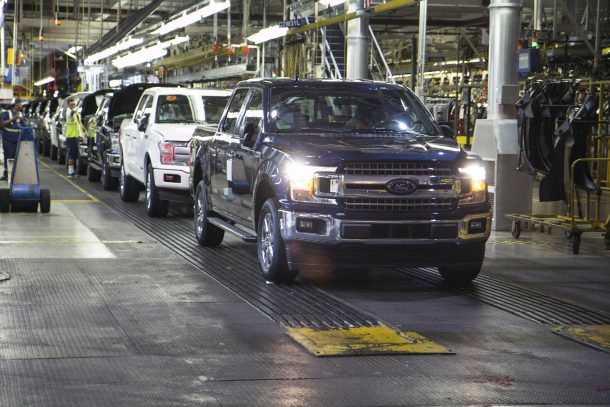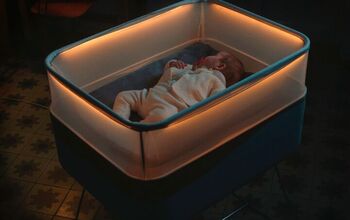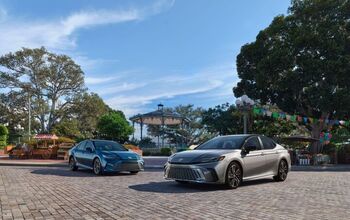Ford Eyeing Blue Oval Trucks Built in China

China’s new vehicle market may not be as hot as it once was, but it’s still big. Very big. And pickup trucks, hungrily gobbled up by fleet operators, are a less volatile segment to do business in.
That’s why Ford’s mulling, for the first time, the idea of building Ford-branded trucks inside the country, rather than just importing them. However, before the automaker signs off on such an effort, China will have to do its part.
As reported by Reuters, Ford’s appearance this week at the China International Import Expo (CIIE) brought with it the possibility of local production, but only if Chinese cities become more receptive to allowing pickups in their city centers.
Several major cities in the vastly polluted country ban the use of such vehicles in their urban cores, giving U.S. automakers cold feet on the issue. The situation is evolving, though. Some cities have relaxed their once-rigid laws, with others poised to follow. That, plus the growing appetite for pickups among the Chinese citizenry, has American OEMS salivating over the possibility of boosted market share and boffo overseas profits.
Hoping to capture more buyers, Ford decided to overhaul its presence in the country via the formation of a standalone business unit (Ford China) in October 2018.
“If more areas relax restrictions on pickup trucks, we will plan to locally manufacture Ford-branded pickup trucks in China to meet the demands of Chinese consumers with considerations of the market situation,” Joseph Liu, Ford’s China vice president for product innovation, told Reuters.
Nothing was said about which pickups would enter production, or how those models would be configured. Chinese buyers aren’t very interested in towing, for example, and spaces are tighter in the country’s cities. All Liu would say is that home-built trucks would differ from models it imports from the U.S.
Currently, Ford supplies tech to its Chinese partner JMC, which builds a line of Yuhu-badged pickups.
Despite a 37.7-percent drop in sales in the third quarter of 2019, Ford claims its pickups are growing in popularity. Volume is still low, but combined sales of the Ranger and F-150 Raptor rose 29 percent in Q3 compared to the same period in 2018. Year to date, Ford-badged truck sales are up 60 percent.
[Image: Ford]

More by Steph Willems
Latest Car Reviews
Read moreLatest Product Reviews
Read moreRecent Comments
- Paul 175k? Pffft not a chance. A VW with that mileage is an enormous bill waiting to happen.
- Turbo Is Black Magic Civic Si all the way… it’s the sweet spot of fun to drive, manual, decent MPG’s, no dealer markup BS. Especially in Canada where you can get heated seats.If you are in the US just buy the last gen Si… it’s still a vastly better car than the current one.
- FreedMike Cheap, fun car. I like it. For what it's worth, good examples of the first-gen models (based on the original Golf) have become collectible and expensive.
- Ajla I won't rank them because there are too many permutations but if I was actually shopping them odds are high I'd end up with some flavor of Corolla over some flavor of Civic.
- SCE to AUX He got sick of the commute, and the hassle of being 4 time zones away. Maybe it was mutual.


































Comments
Join the conversation
meant 17.2 million vehicles sold in the US for 2018. A sizable number but 10 million less than China.
We will see, but many of the current cars we have in the US market were introduced in China. Trucks are a different story but that could change as well. I am not saying this is a good thing but this has been happening for the last few years. You are assuming that the Chinese want the same size vehicles as Europeans which is incorrect. As TMA1 has stated the Chinese are building the infrastructure and the size of the vehicles Chinese prefer has little to do with the size of the road, the Chinese have built the bigger roads and the new infrastructure. The US is no longer the No 1 vehicle market in the World. China alone has over 300 million people in the middle class that is a huge market.